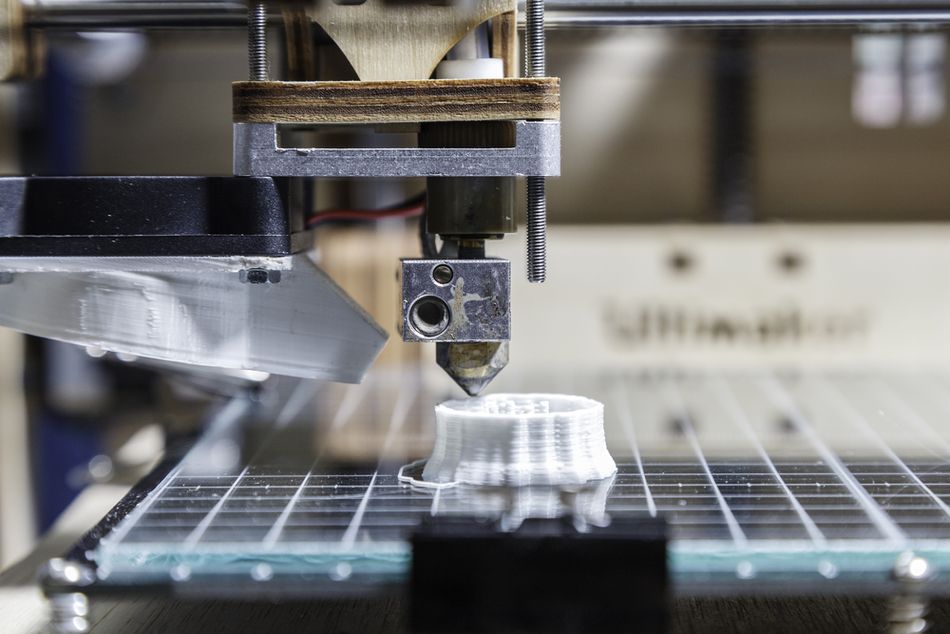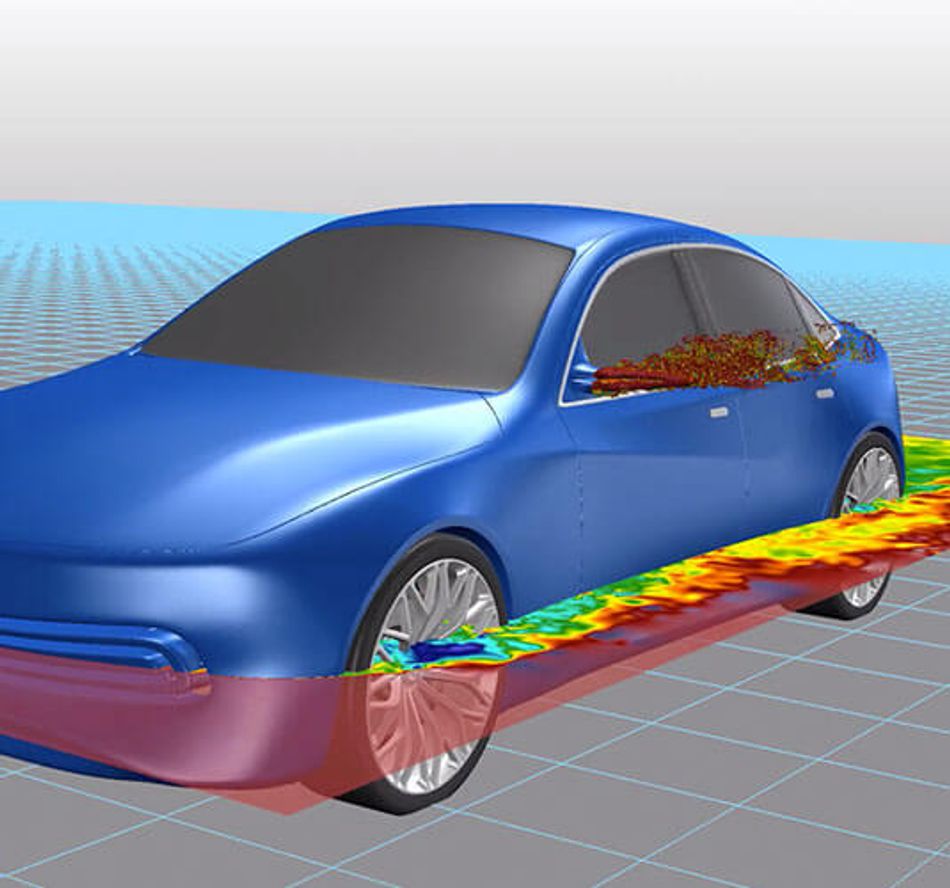How startups can cleverly scale their operations using the cloud
Article #3 Altair Startup Series. How to leverage cloud-based HPC solutions and additional smart services to accelerate development and time-to-market
This is the third article of a 6-part series about the way simulation software can enable startups to innovate with agility and speed. The series includes case studies and deep dives into simulation technology and application.
In this article, we will discuss why the cloud is being selected over on-prem high-performance computing (HPC) solutions and explore example case study scenarios of how the cloud can cleverly be used to support startup operations in various industries. We specifically look at the Altair Unlimited Appliance Package on Oracle Cloud and provide details on how their startup program is supporting innovation.
Why the smartest startups are choosing the cloud over on-prem HPC solutions
Having access to high-end computing and the ability to scale on-demand are reasons why the cloud is key to a startup’s success. By choosing a cloud solution for computing, startups won’t have any additional costs or maintenance on hardware or compute clusters, freeing technical staff from additional responsibilities. These simplifications in the process all add up to accelerate time-to-market In addition, the cloud makes work-from-anywhere truly possible, because engineers can access compute power from any location at any time on a strong cloud platform.
When a company chooses the cloud over on-prem hardware systems, they eliminate the need to house the equipment and keep up with maintenance, not to mention the additional engineers required to simply support the physical infrastructure. In addition, with cloud solutions they are kept up to date automatically. The latest compute frameworks and the most applicable compute technology are applied when necessary. For example, next-generation CPUs or GPUs are put to use without a company or its engineers needing to be a part of the upgrade process.
When selecting the cloud for HPC, startups only pay for what they use. This eliminates the possibility of purchasing too much compute hardware when a company goes the traditional route with on-prem systems. Advanced solutions also include storage on the cloud, networking, and platform services that further remove the burden from startups who are just looking to focus on their product/service offering development.
How Altair’s Unlimited Appliance Package on Oracle Cloud supports startups
There are three aspects of the Altair Unlimited Appliance Package on Oracle Cloud that help to support a startup. First, it provides a “Simulation Platform as A Service.” This means that the software already has appropriate licensing, is fully integrated with the correct compute hardware, and offers an easy path to adoption of simulation technologies, which includes support hours from the engineers at Altair. Companies that take advantage of the package don’t have to leave their engineers to figure out how to get started or troubleshoot when they get stuck. The support hours are a huge time saver for technical professionals who are looking to accelerate their development. For engineering teams within a startup, this means they will have the quickest access to the tools they need to get a product or service to market rapidly.
Second, the Altair Unlimited Appliance Package on Oracle Cloud offers an extremely broad range of interoperable physics solvers in a single place. When a design becomes more advanced or requires additional development using a new simulation or optimization technique, startup teams do not need to seek out a separate vendor or solution. They simply begin using the solver they require all on the same cloud solution. Third, startups are able to take advantage of integrated system administration and workload management through the Altair® PBS Professional® Suite. This is one more additional service that takes the decision-making and procurement workload off the startup. A workload management solution that works with the cloud and the software is provided. To demonstrate how this solution can help startups with cloud-based HPC solutions, we will examine three potential startups scenarios in different industries that put the Altair Unlimited Appliance Package on Oracle Cloud to work.
The case study examples below are based upon anecdotes from startups who faced similar challenges as they began to grow their businesses.
Case Study 1: Startup specializing in 3D printed parts
A startup that provided 3D printed parts was looking to utilize simulation software to optimize part shape, thermal characteristics, and the build process to establish the manufacturability of their designs. Previously the company had used physical testing and knowledge established by the years of experience that the team had brought to the table. But as they began to explore more advanced applications and complicated shapes and materials, they realized that they needed to find a simulation solution to speed-up development.
With only a core engineering team, they tried to balance searching for the right software and HPC solution by reaching out to vendors and trialing different pieces of software. But quickly they realize that was taking far too much time away from their income-generating development work. They applied for the Altair Unlimited Appliance Package on the Oracle Cloud after realizing that they would have access to all the simulation tools and cloud computing resources they needed. But the best benefit of the package to the fast-moving startup was the fact that Altair managed the IT, software licensing, and cloud integrations. They were also available for questions and tutorials because of the included support hours that were a part of the program. The startup was then able to redirect staff and time back into innovation channels within the company, further accelerating their growth.

Case Study 2: Biomedical technology company
A biomedical tech startup specializes in sensors and wireless devices catered to the healthcare industry and their patients. They began by focusing on a series of simple sensors that they converted from cumbersome wired devices rolled around hospital departments to wireless, compact devices that could be connected to the cloud, utilizing Bluetooth®, IoT, and the smallest possible sensors and processors in one device. They made a name for themselves by working closely with doctors to customize a solution that their patients could easily integrate into their daily lives.
A new contract was proposed to the startup, but it required development of a different type of sensor, one they would require new simulation software for, and an unknown in terms of how long development would take them. The opportunity was exciting, and exactly what the founders were hoping for to expand their operations. But they needed to find an HPC solution that would have the flexibility and give them additional computing resources if the number of trials they needed ballooned. In addition, the added multi-physics simulations would mean more of their engineering team submitting trials to the compute resource, so they needed to find a solution for appropriate queuing and prioritization of trials.
The Altair Unlimited Appliance Package on the Oracle Cloud allowed the startup immediate access to all the simulation tools they required once they were accepted. The program made it possible for the startup to simulate at a price that also enabled them to invest their existing funds into more technical staff, which allowed them to fulfil the new contract successfully. As an added benefit, they were able to get all the new engineers and scientists up to speed quickly and submitting jobs effectively using the Altair® PBS Professional® Suite, which improved the overall productivity of simulations across the company.
Case Study 3: EV startup looking to maximize simulation on-demand capability
As the electric vehicle (EV) startup moved through its first years in business, it went from initial concept and overall form simulations to move on to simulations for each of the component systems. One such example was how the company needed to originally nail down the outer exterior aerodynamic surfaces to suit packaging and drag requirements. But as time passed, and more intricate systems were being designed, the EV company then needed to simulate the internal aerodynamics and thermodynamics of the intake and cooling systems, which required different physics solvers.
As the startup began progressing and expanding their designs, they realized that they needed additional software applications to address different physics and they required more compute resources as they ramped up design toward prototyping and production. While the company required additional resources, they didn’t have the engineering team members that they could spare to look into adding that resource; they were busy designing the car.
The startup instead applied for the Altair Unlimited Appliance Package and was able to efficiently add HPC resources and all the simulation tools they required without losing valuable technical team members from their current roles. They could do so immediately, instead of having to go through the lengthy and expensive process of adding on prem compute clusters. They also saved time getting themselves up to speed with the system and software by tapping into the support hours that came with the program from Altair.

How to qualify for the Altair Unlimited Appliance Package on the Oracle Cloud
The Altair Package described in this article can be accessed by startups that meet the following qualifications:
- Company is younger than 5 years old
- Company makes less than $5 million in annual revenue
- Company is privately held
If you are interested in learning more about the Altair Unlimited Appliance Package on the Oracle Cloud, you can visit their website. All eligible startups are encouraged to apply for the program in order to support their product and service development.
This is the third of 6-part series about the way simulation software can enable startups to innovate with agility and speed.
Article One demonstrates how access to simulation software assists the next generation of, hardware teams.
Article Two shows how mobility startup, URWHAN Bikes, benefited from Advanced Computer Integrated Technology.
Article Four speaks about how simulation is helping startups set the direction of the e-mobility industry.
Article Five demonstrates how startups can accelerate growth and effectively use artificial intelligence for quality assurance, data analytics, and other critical engineering tasks.
Article Six explores how startup programs, including Altair's, can lower that access barrier for entrepreneurs.


